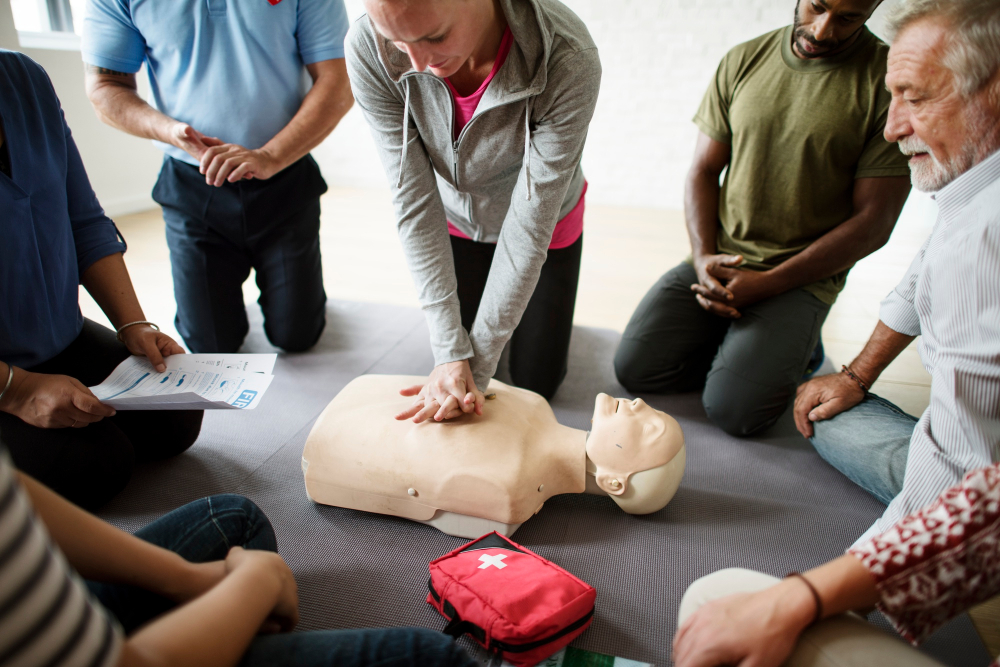The difference between life and death during a serious situation turns into a few seconds, and the competency of the responding rescue team plays a major role. Talking about the experts who have undergone proper training for advanced life support, the stakes are not limited. The initial advanced resuscitation course is the main stage, but in the fast-empowering, evidence-driven world of emergency medicine, the annual refresher is not just a box to tick but a necessity. Not focusing on renewal will risk your certification and also the lives of ones you are trained to save.
1. Minimising Skill Fade and Cognitive Decay
The picture of high-stakes, low-frequency skills is that they go down instantly without practice. An annual refresher must understand the natural decline, making sure your readiness stays correct.
- Muscle Memory Erosion: Skills such as correct chest compression depth, rate, and using the specialised equipment like advanced airway adjuncts, defibrillator placement, and oxygen delivery systems depend on perfect muscle memory. With no proper practice, studies display critical performance factors such as effective compression depth going down by over 40%.
- Protocol Hesitation: In an actual cardiac arrest, hesitation kills. An annual course forces you to run through simulated scenarios under pressure, reinforcing the correct decision-making algorithms and team dynamics, turning complex protocols into instant, life-saving responses.
- Procedural Drift: Over time, even highly trained individuals can unknowingly adopt minor deviations from best practice. A structured refresher course provides crucial, expert-led correction, ensuring your technique remains clinically sound and aligned with national guidelines.
2. Staying Current with the Latest Clinical Guidelines
Resuscitation science is a constantly evolving field. Groundbreaking research, new clinical trials, and equipment advancements mean that the gold standard of care today may be outdated tomorrow.
- Evidence-Based Updates: Resuscitation guidelines, like those issued by the Australian Resuscitation Council (ARC) or the American Heart Association (AHA), are reviewed and updated frequently. A refresher training is the primary mechanism to bridge the gap between new scientific consensus and your clinical practice.
- New Drug and Device Protocols: Advanced life support often involves pharmacology and sophisticated monitoring. Annual training covers updates on drug administration, changes in physiological targets (like temperature management post-resuscitation), and new technology protocols, ensuring you deliver the most effective care possible.
- The Evolving Chain of Survival: Guidelines continually refine the steps in the Chain of Survival, for instance, by emphasising early administration of epinephrine in non-shockable rhythms, or adapting protocols for high-risk situations like cardiac arrest in pregnancy. An advanced resuscitation course refresher guarantees you are implementing these crucial, evidence-based changes.
3. Ensuring Workplace Compliance and Liability Protection
Beyond the moral imperative, maintaining up-to-date certification is a core professional responsibility that ensures your adherence to workplace safety standards and protects you and your employer from liability.
- Adherence to WHS Legislation: In Australia, Safe Work Australia and various state regulations strongly recommend or mandate annual CPR and frequent refreshers for specialised first aid units like advanced resuscitation. Maintaining this currency is non-negotiable for compliance.
- Professional Integrity and Confidence: A current certification demonstrates to your colleagues, patients, and employer that you are committed to professional excellence and possess verified, current, and relevant skills. This confidence is contagious in a high-stress emergency setting.
- Managing Complex Scenarios: Advanced resuscitation involves the use of equipment like oxygen delivery devices and advanced airway adjuncts. Regular training ensures you are competent in the pre-use checks, safe operation, and troubleshooting of this vital, often complex, equipment.
4. Mastering Crisis Resource Management (CRM)
Effective resuscitation is a team sport. An annual refresher shifts the focus beyond individual skills to the crucial non-technical abilities that govern successful teamwork under extreme pressure.
- Team Dynamics and Leadership: Refresher training utilises high-fidelity simulations to practice clear closed-loop communication, assertive intervention, and effective task delegation. This trains the designated leader to maintain a “global view” and other team members to contribute optimally, regardless of their professional background.
- Shared Mental Model: By running through standardised, complex scenarios, the entire team develops a shared understanding of the unfolding crisis and the established protocol. This reduces confusion and critical pauses, which are proven to decrease patient survival rates.
- Non-Technical Skill Refinement: An advanced resuscitation course renewal specifically targets skills like resource utilisation (personnel and equipment), decision-making under stress, and post-event debriefing—elements vital for continuous professional improvement and a high-performance safety culture.
Take Action: Secure Your Clinical Readiness
Do not allow your life-saving skills to fade into obsolescence. Your proficiency is not a static achievement, but a dynamic, perishable asset that must be actively maintained. The difference between an expired skill and a current one can be the patient’s outcome.
Don’t Just Renew—Recharge Your Expertise with Training Aid Australia
Training Aid Australia offers nationally accredited, hands-on refresher courses designed specifically for busy professionals. Our programs focus on critical skill retention, team resource management, and incorporating the latest international guidelines.
Secure your professional currency and uphold the highest standard of patient care. Enroll in your Annual Advanced Resuscitation Refresher Today!
